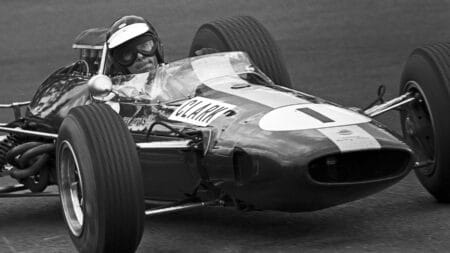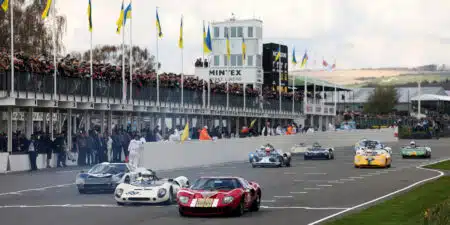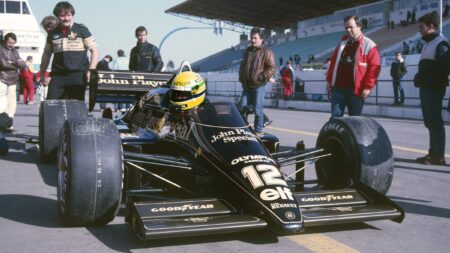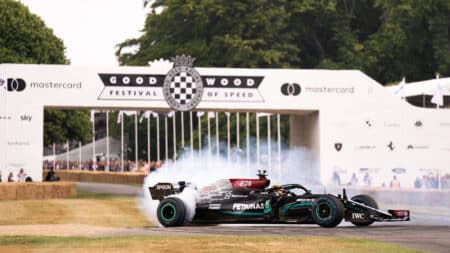Continuing the Jaguar theme on our classified spotlights, this week we turn our attention from D-type to E-type. The Jaguar focus is appropriate, given that the marque celebrates its 80th birthday this year. To mark the occasion, Jaguar Heritage is fielding nine of its most famed 1950s models in next week’s Mille Miglia. Derek Bell, Mike Cross and Jodie Kidd will be among the privileged few to pilot the fleet from Brescia to Rome and back again.

Although E-types, produced from ’61-75, are a little modern to compete in the 1000-mile event, they remain Jaguar’s most recognisable creation to date. Designed by Englishman Malcolm Sayer, the E-type has always turned heads. Based on a ’63 Series 1, this example on offer from Runnymede Motor Company now exists in low-drag specification. No E-type could be described as anything less than beautiful, but dressed in low-drag bodywork the curvaceous design surely hit its zenith.

Prepared for the 1962 racing season, the original E-type Low Drag Coupé prioritised weight reduction and an improved aerodynamic profile over the standard car. The body shell was produced using light gauge steel while the doors, bonnet and differential castings were all manufactured from aluminium. Unsurprisingly, the LDC also spent time in a wind tunnel. Data revealed the body shape was 10 per cent more aerodynamically efficient than a Ferrari 250 GTO and up to 20 per cent improved over the standard E-type. The ‘Low Drag’ moniker is well deserved.
Despite the LDC’s existence, Jaguar soon shifted focus to an all-aluminium, ‘Lightweight’ version of the E-type. Only 12 of 18 planned Lightweights were built in period. Keen to complete the planned production run, Jaguar are now in the process of hand-building the final six Lightweights to the exact specification of the ’63 cars, right down to the original chassis number series.
As the original Lightweights became Jaguar’s priority in the ‘60s, the LDC morphed into a slow-burning after-hours project. It was eventually purchased by privateer driver Dick Protheroe who successfully campaigned the car (registered CUT 7) in ‘63 and ’64. Now owned by Viscount Cowdray, CUT 7 continues to make regular appearances at the Goodwood Revival. Perhaps surprisingly, only once did the Jaguar factory fit low drag panels to a Lightweight E-type. The Low Drag Lightweight was produced for Peter Lindner and raced at Le Mans in ’64 before a significant accident at Montlhéry put an end to its racing career.

The Runnymede Low Drag Coupé has a racing history of its own, winning the French FIA championship in 1991 with Thierry Gay. Although currently presented in road-legal form the car could be easily reverted to FIA specification for participation in historic competitions. It certainly has a build sheet worthy of a racing paddock.
Up front, the car uses a 3.8-litre unit with an alloy block, a balanced crank, lightweight pistons and a race-ready camshaft. The engine produces 345bhp with dyno charts available to support the claim. Clothed by Jaguar specialists RS Panels, it’s also lighter than the Series 1 car on which it’s based. In December 1961, Car and Driverdescribed the Series 1 E-type as ‘a great crowd drawer and a terrific ego booster’. On what was an evidently enjoyable day for the road test team they also recorded the car at 145mph with ‘luggage in the trunk and, most importantly, even with the top down’.
Lowering the canvas hood is not possible on this example but that seems a small price to pay for the drag-reducing, race-bred and timelessly stylish silhouette. Happily, the E-types spiritual successor, the F-type (available in coupé or convertible format) has been a major success since its launch in 2013. Let’s hope we’re talking favourably about the I-type in another 80 years’ time. Happy birthday Jaguar.







